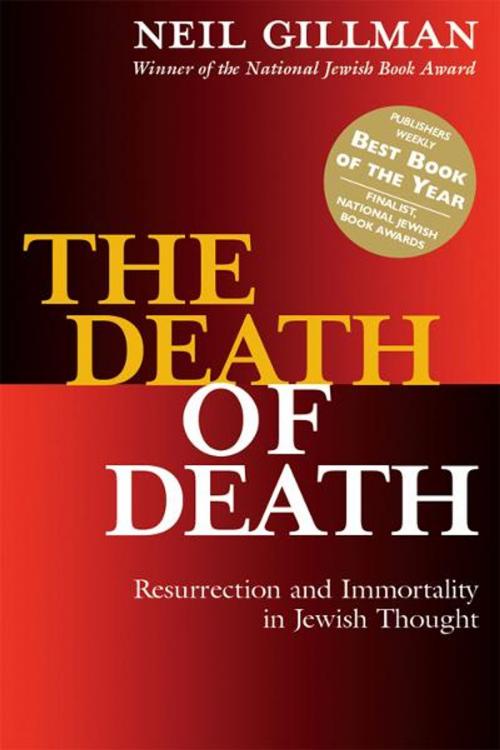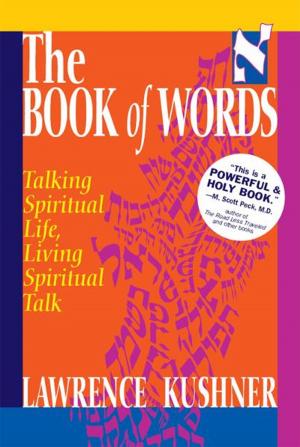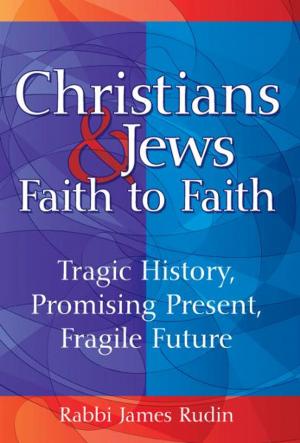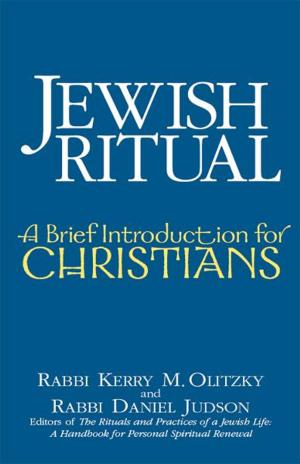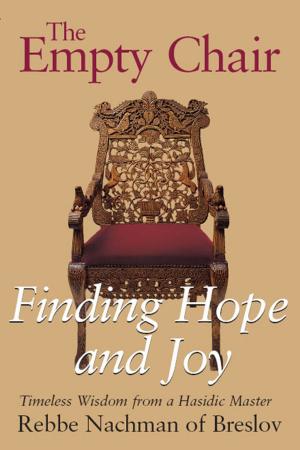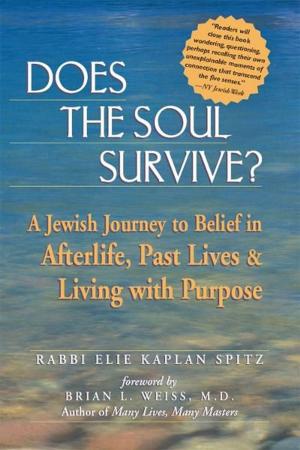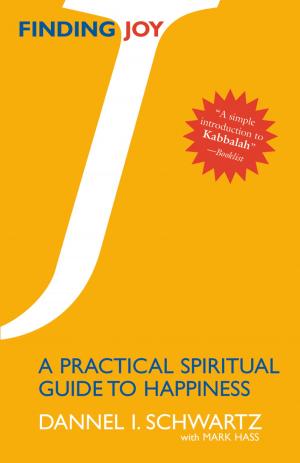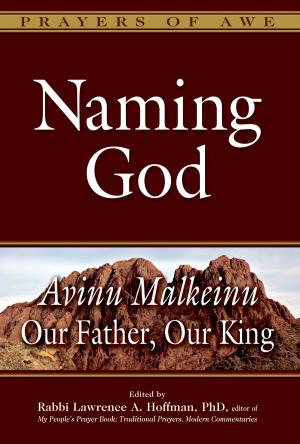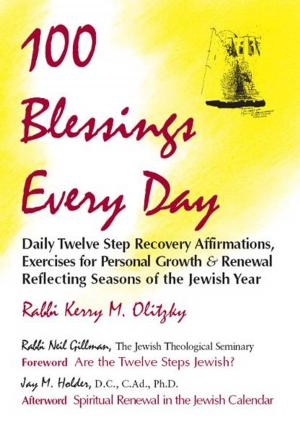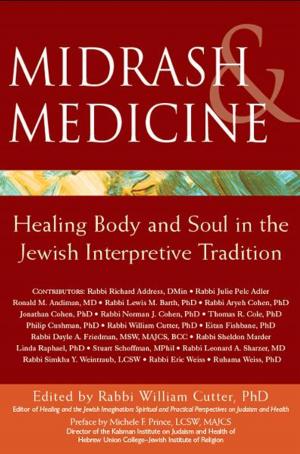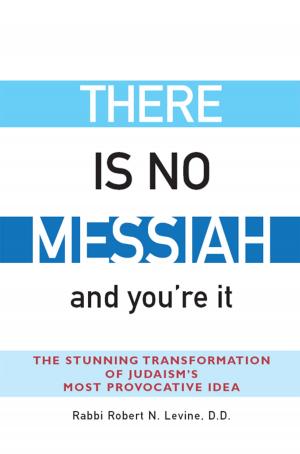The Death of Death: Resurrection and Immortality in Jewish Thought
Nonfiction, Religion & Spirituality, New Age, Reincarnation, Judaism| Author: | Neil Gillman | ISBN: | 9781580235426 |
| Publisher: | Jewish Lights Publishing | Publication: | February 1, 1997 |
| Imprint: | Jewish Lights | Language: | English |
| Author: | Neil Gillman |
| ISBN: | 9781580235426 |
| Publisher: | Jewish Lights Publishing |
| Publication: | February 1, 1997 |
| Imprint: | Jewish Lights |
| Language: | English |
Masterful. Publishers Weekly
Does death end life, or is it the passage from one stage of life to another?
In The Death of Death, noted theologian Neil Gillman offers readers an original and compelling argument that Judaism, a religion often thought to pay little attention to the afterlife, not only presents us with rich ideas on this subjectbut delivers a deathblow to death itself.
Combining astute scholarship with keen historical, theological and liturgical insights, Gillman outlines the evolution of Jewish thought about bodily resurrection and spiritual immortality. Beginning with the near-silence of the Bible on the afterlife, he traces the development of these two doctrines through Jewish history. He also describes why today, somewhat surprisingly, more contemporary Jewish scholarsincluding Gillmanhave unabashedly reaffirmed the notion of bodily resurrection.
In this innovative and personal synthesis, Gillman creates a strikingly modern statement on resurrection and immortality.
The Death of Death gives new and fascinating life to an ancient debate. This new work is an intellectual and spiritual milestone for all of us interested in the meaning of life, as well as the meaning of death.
Neil Gillman, rabbi and PhD, is professor of Jewish philosophy at The Jewish Theological Seminary in New York, where he has served as chair of the Department of Jewish Philosophy and dean of the Rabbinical School. He is author of Sacred Fragments: Recovering Theology for the Modern Jew, winner of the National Jewish Book Award; The Death of Death: Resurrection and Immortality in Jewish Thought, a finalist for the National Jewish Book Award and a Publishers Weekly Best Book of the Year; The Way Into Encountering God in Judaism; The Jewish Approach to God: A Brief Introduction for Christians; and Traces of God: Seeing God in Torah, History and Everyday Life.
Does death end life, or is it the passage from one stage of life to another?
In The Death of Death, noted theologian Neil Gillman offers readers an original and compelling argument that Judaism, a religion often thought to pay little attention to the afterlife, not only presents us with rich ideas on this subjectbut delivers a deathblow to death itself.
Combining astute scholarship with keen historical, theological and liturgical insights, Gillman outlines the evolution of Jewish thought about bodily resurrection and spiritual immortality. Beginning with the near-silence of the Bible on the afterlife, he traces the development of these two doctrines through Jewish history. He also describes why today, somewhat surprisingly, more contemporary Jewish scholarsincluding Gillmanhave unabashedly reaffirmed the notion of bodily resurrection.
In this innovative and personal synthesis, Gillman creates a strikingly modern statement on resurrection and immortality.
The Death of Death gives new and fascinating life to an ancient debate. This new work is an intellectual and spiritual milestone for all of us interested in the meaning of life, as well as the meaning of death.
Neil Gillman, rabbi and PhD, is professor of Jewish philosophy at The Jewish Theological Seminary in New York, where he has served as chair of the Department of Jewish Philosophy and dean of the Rabbinical School. He is author of Sacred Fragments: Recovering Theology for the Modern Jew, winner of the National Jewish Book Award; The Death of Death: Resurrection and Immortality in Jewish Thought, a finalist for the National Jewish Book Award and a Publishers Weekly Best Book of the Year; The Way Into Encountering God in Judaism; The Jewish Approach to God: A Brief Introduction for Christians; and Traces of God: Seeing God in Torah, History and Everyday Life.
Masterful. Publishers Weekly
Does death end life, or is it the passage from one stage of life to another?
In The Death of Death, noted theologian Neil Gillman offers readers an original and compelling argument that Judaism, a religion often thought to pay little attention to the afterlife, not only presents us with rich ideas on this subjectbut delivers a deathblow to death itself.
Combining astute scholarship with keen historical, theological and liturgical insights, Gillman outlines the evolution of Jewish thought about bodily resurrection and spiritual immortality. Beginning with the near-silence of the Bible on the afterlife, he traces the development of these two doctrines through Jewish history. He also describes why today, somewhat surprisingly, more contemporary Jewish scholarsincluding Gillmanhave unabashedly reaffirmed the notion of bodily resurrection.
In this innovative and personal synthesis, Gillman creates a strikingly modern statement on resurrection and immortality.
The Death of Death gives new and fascinating life to an ancient debate. This new work is an intellectual and spiritual milestone for all of us interested in the meaning of life, as well as the meaning of death.
Neil Gillman, rabbi and PhD, is professor of Jewish philosophy at The Jewish Theological Seminary in New York, where he has served as chair of the Department of Jewish Philosophy and dean of the Rabbinical School. He is author of Sacred Fragments: Recovering Theology for the Modern Jew, winner of the National Jewish Book Award; The Death of Death: Resurrection and Immortality in Jewish Thought, a finalist for the National Jewish Book Award and a Publishers Weekly Best Book of the Year; The Way Into Encountering God in Judaism; The Jewish Approach to God: A Brief Introduction for Christians; and Traces of God: Seeing God in Torah, History and Everyday Life.
Does death end life, or is it the passage from one stage of life to another?
In The Death of Death, noted theologian Neil Gillman offers readers an original and compelling argument that Judaism, a religion often thought to pay little attention to the afterlife, not only presents us with rich ideas on this subjectbut delivers a deathblow to death itself.
Combining astute scholarship with keen historical, theological and liturgical insights, Gillman outlines the evolution of Jewish thought about bodily resurrection and spiritual immortality. Beginning with the near-silence of the Bible on the afterlife, he traces the development of these two doctrines through Jewish history. He also describes why today, somewhat surprisingly, more contemporary Jewish scholarsincluding Gillmanhave unabashedly reaffirmed the notion of bodily resurrection.
In this innovative and personal synthesis, Gillman creates a strikingly modern statement on resurrection and immortality.
The Death of Death gives new and fascinating life to an ancient debate. This new work is an intellectual and spiritual milestone for all of us interested in the meaning of life, as well as the meaning of death.
Neil Gillman, rabbi and PhD, is professor of Jewish philosophy at The Jewish Theological Seminary in New York, where he has served as chair of the Department of Jewish Philosophy and dean of the Rabbinical School. He is author of Sacred Fragments: Recovering Theology for the Modern Jew, winner of the National Jewish Book Award; The Death of Death: Resurrection and Immortality in Jewish Thought, a finalist for the National Jewish Book Award and a Publishers Weekly Best Book of the Year; The Way Into Encountering God in Judaism; The Jewish Approach to God: A Brief Introduction for Christians; and Traces of God: Seeing God in Torah, History and Everyday Life.
